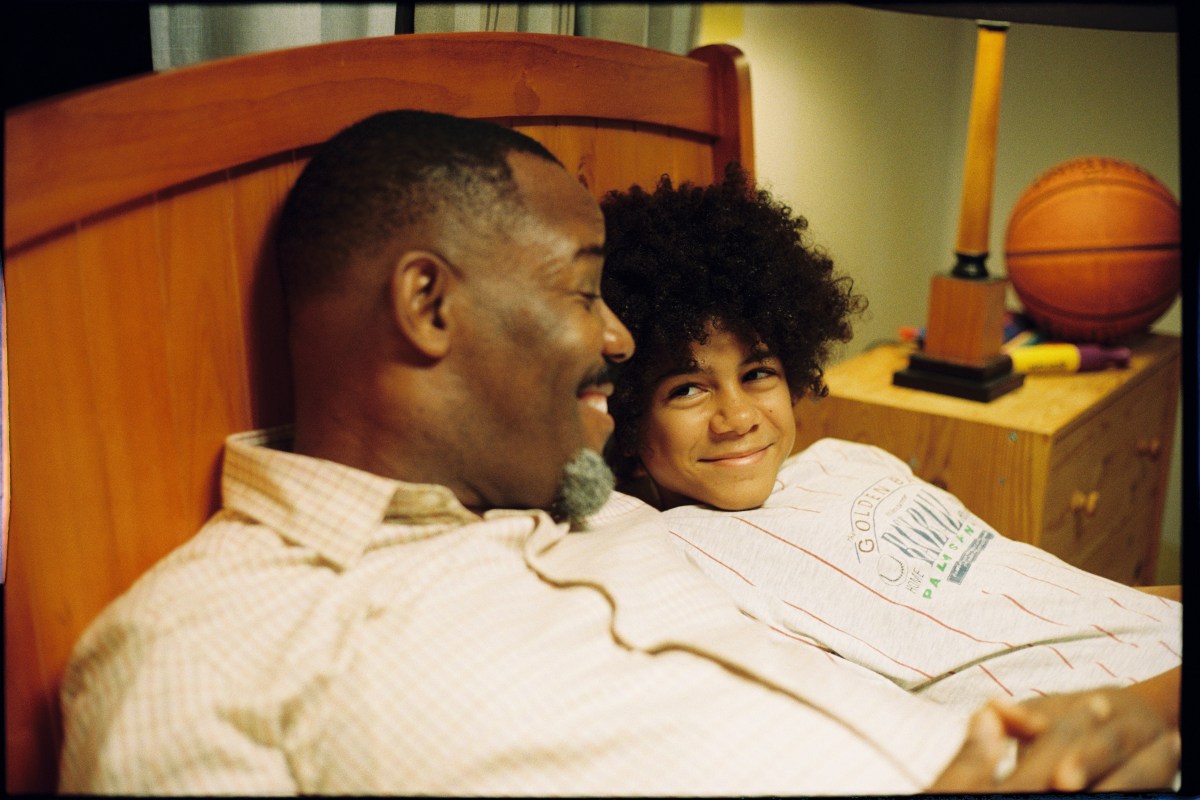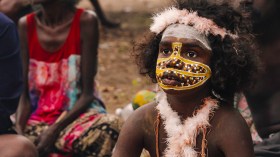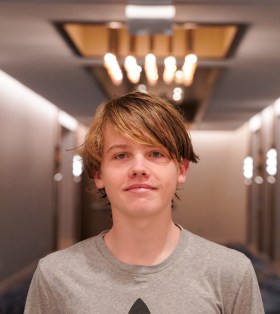Melbourne, the setting for MIFF Bright Horizons entry Pasa Faho, and the city I’ve called home for my entire life, is most often depicted on screen via a white-washed, cosmopolitan lens, in which snappily-dressed CBD workers sip lattes and endure their upper-class woes with a ciggie and/or craft beer in hand.
That glossy, silver-screen depiction of Melbourne is – to put it bluntly – a load of bullshit. After all, the Melbourne I know is one of immigrants, hybrid cultures and diverse beliefs.
In Pasa Faho, Kalu Oji’s feature film debut about a complex relationship between a Nigerian immigrant and his Australian-born son, we see that Melbourne far less-seen on screen – but one that rings more true than most movies about this beautiful, multicultural urban sprawl.
Pasa Faho: quick links
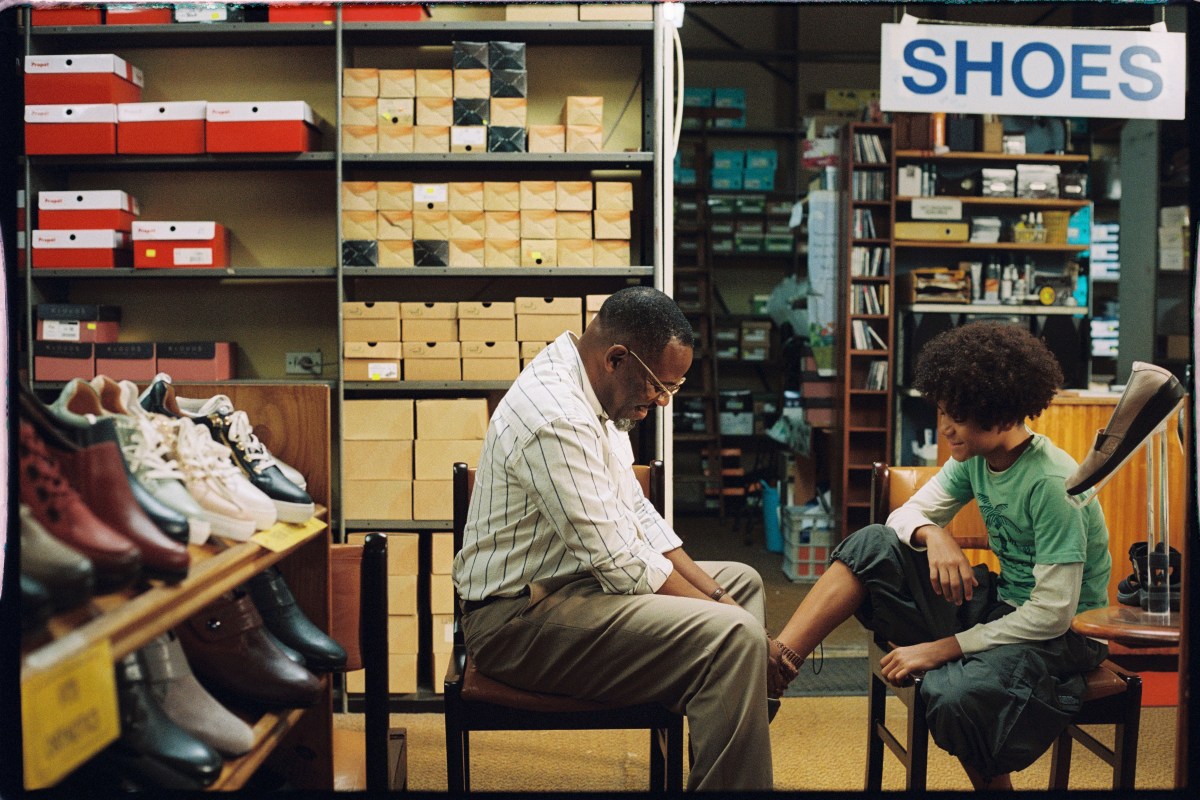
What is Pasa Faho about?
It’s 2012, and Azubuike, played by beloved Nigerian comedian and actor Okey Bakassi, is content to live a simple life selling shoes in a 1970s-style shopfront inside a larger, Southwest-Melbourne market complex. His Igbo community (referring to Nigerians and the language they speak) gather every Sunday at church, and he is otherwise occupied every day by running the shoe store.
But interest in modest footwear is waning, and with neighbouring stores going under, it’s clear Azubuike won’t be able to ignore the possibility of foreclosure.
While deciding how best to navigate his depressing economic reality, Azubuike has a more urgent matter to attend to: the arrival of his estranged son.
Obinna (now going by ‘Oscar’ at school), the product of Azubuike’s marriage to a white Australian woman, is ten years old and looking for guidance. Now, both father and son must confront the meaning of their relationship as they both just try to get by.
Watch the trailer for Pasa Faho:
Father and son in Pasa Faho
The simple premise of Pasa Faho gives way to a rich inner world between estranged father and son in a small but tight-knit Nigerian diaspora. Kalu himself is of Igbo-Australian decent, and the film is a reflection, or more of a musing on, his experiences, memories and future concerns.
The cultural clash between Igbo and Australian is catalysed in the film as an ongoing disagreement between Azubuike and Obinna over whether a goat is a pet or a feast. The goat is cute and fluffy, but it is also fat, grass-fed and placid.
You can guess how well that gesture goes down between them. Feeling a fractured sense of identity already, Obinna is now witnessing first hand the parts of his paternal culture that make him so different from the predominantly white Australian culture.
But Azubuike, facing the loss of his single source of income and livelihood, and not being particularly fond of the church, is simply searching for something concrete to hold onto: a ritual, a ceremony, a tradition he can pass on to his son with pride.
‘I don’t want my son to inherit my failure,’ he says in a tearful, vulnerable moment.
The fear or failing, of making even one mistake in front of his son, drives all of Azubuike’s decisions – and is a sentiment that should be relatable for all parents. Similarly, Obinna’s desire to fit in, and to make good so his dad doesn’t have to worry about him, are relatable sentiments for all children (current and former).
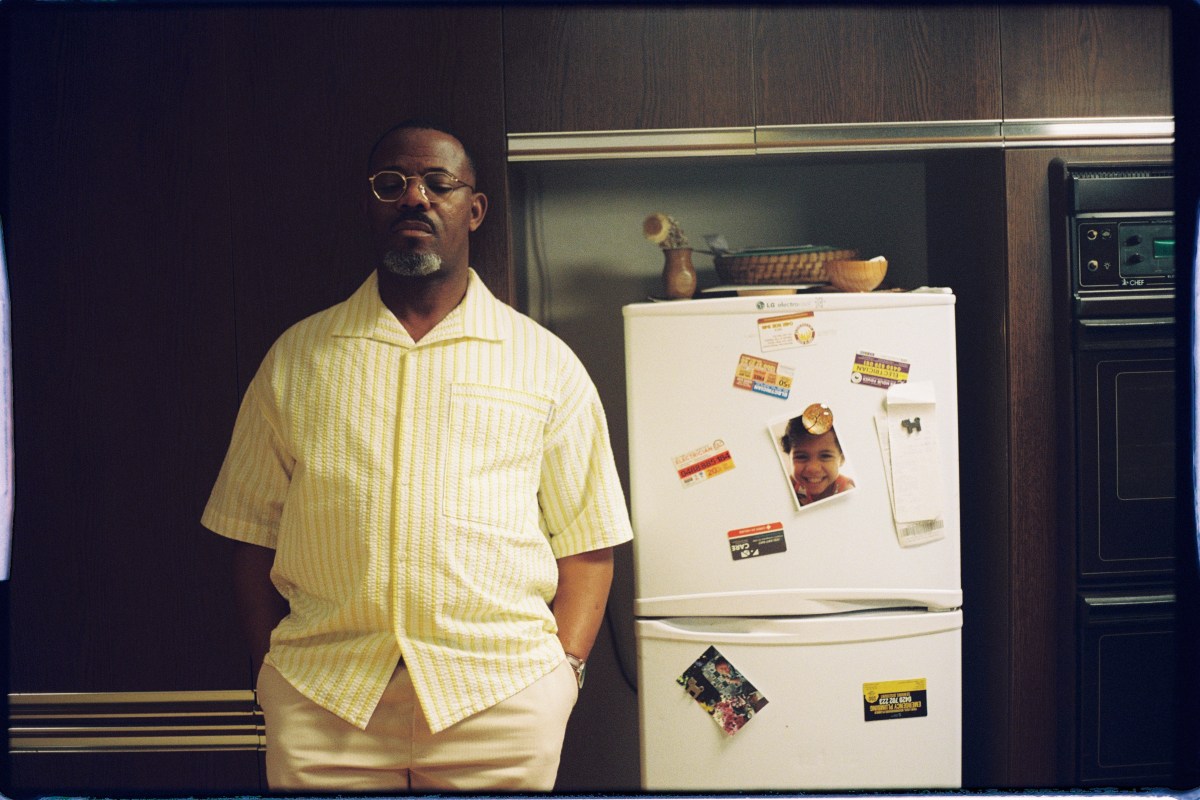
Pasa Faho: the final verdict
Pasa Faho is not just an achievement for Kalu as a debut director and for all of the actors involved (Bakassi is a particular highlight) – it’s also a simply beautiful film to behold. From the dusty shelves of the shoe store to Azubuike’s humble 1970s-style home, the light-filled church hall and beyond, cinematographer Gabriel Francis captures each scene with an old-school finesse that makes the film feel timeless.
‘Pasa Faho’ is a play on words of director Kalu’s invention, meaning ‘parts of a whole’. It’s a fitting title for this slice-of-life flick, and it can interpreted many ways: the way the Igbo community represent one sliver of Nigerian culture, or the way Obinna is part of Azubuike’s life (and vice versa), or the way the church feels entitled to Azabuike’s trust, or the way he and his shoe shop fit into the urban ecosystem.
Everything has its place in this world, but nothing exists in a vacuum.

Beautiful, tender, and so well-acted, this gem of an Australian film should go on your watchlist straight away.
Pasa Faho is showing at the Melbourne International Film Festival (MIFF), before heading to CinefestOZ and the Darwin International Film Festival (DIFF).
Discover more screen, games & arts news and reviews on ScreenHub and ArtsHub. Sign up for our free ArtsHub and ScreenHub newsletters.
Actors:
Okey Bakassi, Tyson Palmer, Laureta Idika Uduma
Director:
Kalu Oji
Format: Movie
Country: Australia
Release: 14 September 2025
